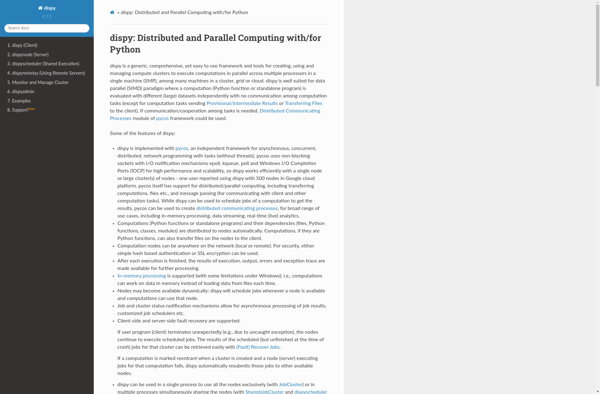Asyncoro
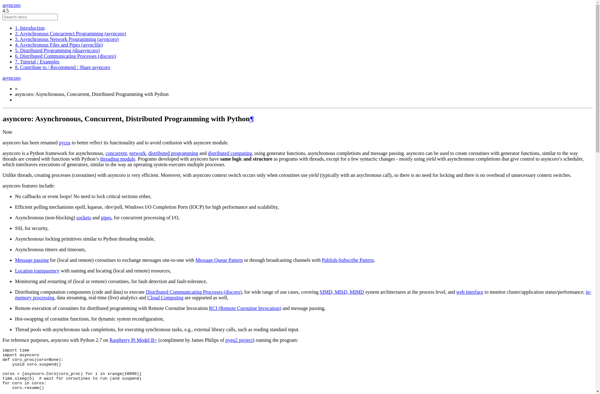
asyncoro: Open-Source Python Library for Asynchronous Programming
asyncoro is an open-source Python library for asynchronous programming using coroutines. It allows writing concurrent code in a sequential manner by automatically suspending and resuming coroutines. Useful for I/O-bound tasks and high concurrency scenarios.
What is Asyncoro?
asyncoro is an open-source Python library that aims to simplify asynchronous programming by enabling a sequential coding style using coroutines. It abstracts away callback-based APIs and event loops, allowing developers to write concurrent code as if it were sequential.
Some key features of asyncoro include:
- Lightweight coroutines (similar to Python's native async/await) to suspend and resume tasks.
- High performance from carefully optimized C and Cython components.
- Integration with networking, subprocesses, threads, timers.
- Familiar sequential control flow using generators, loops, exceptions.
- Easy concurrent design patterns like pipelines, worker pools.
asyncoro works by executing a set of coroutines concurrently on top of an event loop. When a coroutine awaits on a future, it yields control allowing other coroutines to run. This makes asyncoro ideal for I/O bound workloads and high concurrency scenarios.
Overall, asyncoro simplifies async programming for Python developers by enabling a sequential coding style. It's useful for building responsive network services, scraping jobs, claiming APIs, and other tasks requiring concurrency and parallelism.
Asyncoro Features
Features
- Coroutine-based asynchronous programming
- Automatic suspending and resuming of coroutines
- AsyncIO compatibility layer
- Async generators and context managers
- Synchronization primitives like Locks, Events, Semaphores
- Asynchronous networking and subprocesses
- Async-native threading and multiprocessing
Pricing
- Open Source
Pros
Cons
Official Links
Reviews & Ratings
Login to ReviewThe Best Asyncoro Alternatives
Top Development and Asynchronous Programming and other similar apps like Asyncoro
Here are some alternatives to Asyncoro:
Suggest an alternative ❐Tornado Web Server
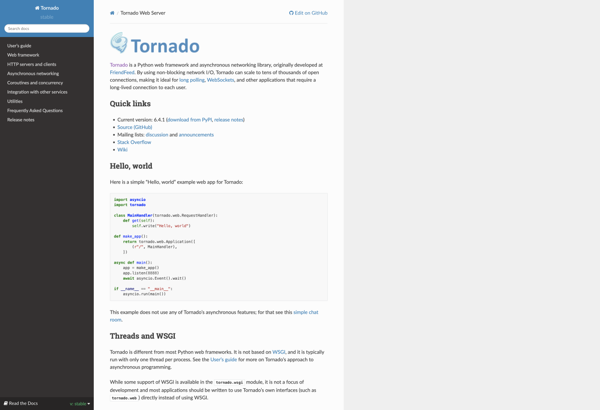
Node.js
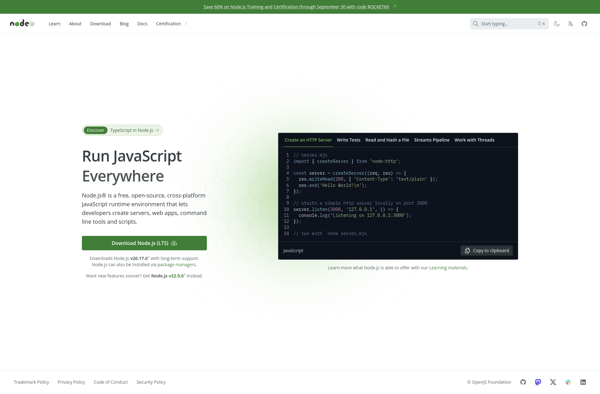
NoPrint.js

Erlang
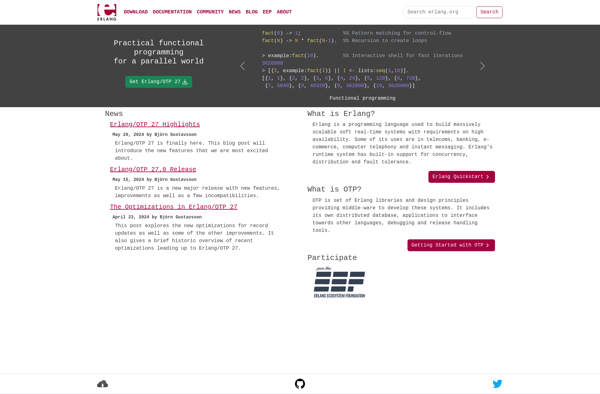
Vert.x

Dispy
